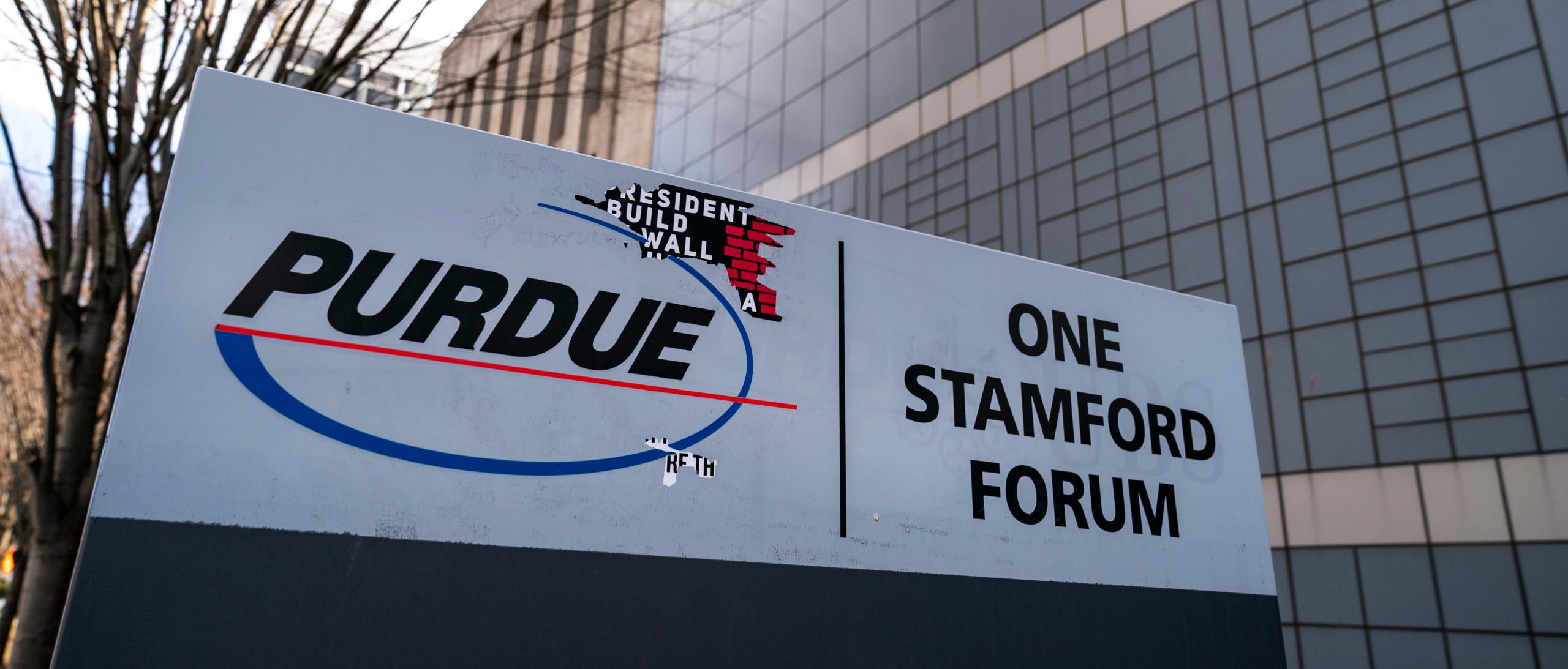The Supreme Court on Thursday blocked opioid maker Purdue Pharma’s bankruptcy settlement, which would have provided immunity to the Sackler family from facing lawsuits over their role in the opioid crisis.
Under the settlement, the Sacklers agreed to provide $6 billion to address the opioid crisis as part of a deal that granted them what the U.S. Bankruptcy Trustee argued was “exceptional and unprecedented” immunity from future lawsuits. In Harrington v. Purdue Pharma, the justices held 5-4 that “the bankruptcy code does not authorize a release and injunction that, as part of a plan of reorganization under Chapter 11, effectively seeks to discharge claims against a nondebtor without the consent of affected claimants.”
“In this case, the Sacklers have not filed for bankruptcy or placed all their assets on the table for distribution to creditors, yet they seek what essentially amounts to a discharge. No provision of the code authorizes that kind of relief,” the majority held.
After Purdue Pharma was hit with thousands of lawsuits over its deceptive marketing downplaying the addictiveness of its drug, OxyContin, the company filed for bankruptcy in 2019. Purdue Pharma pleaded guilty to criminal charges related to its misleading marketing in 2007 and again in 2020.
Members of the Sackler family owned the Purdue Pharma company.
As the crisis grew in the 11 years before filing for bankruptcy, the Sackler family withdrew nearly $11 billion from the company, according to court documents.
The U.S. Trustee, the DOJ office that oversees bankruptcy cases, argued the settlement “allows the Sacklers to shield billions of dollars of their fortune while extinguishing, without payment, claims alleging trillions of dollars in damages.” Additionally, it releases them “from claims based on fraud and other forms of willful misconduct that could not be discharged if the Sacklers themselves had filed for bankruptcy.”
However, 95% of the victims who voted support the settlement. In an amicus brief, a group of victims noted this overwhelming majority came about because the plan was “the only viable mechanism for affording victims the aid they need—and need now.”
The justices heard oral arguments on the plan in December.

STAMFORD, CT – APRIL 2: Purdue Pharma headquarters stands in downtown Stamford, April 2, 2019 in Stamford, Connecticut. (Photo by Drew Angerer/Getty Images)
In May 2023, the Second Circuit Court of Appeals upheld the plan as approved earlier by the bankruptcy court, noting bankruptcy “is inherently a creature of competing interests, compromises, and less-than-perfect outcomes.”
Writing for the dissenting justices, Justice Brett Kavanaugh argued that the majority’s decision was “wrong on the law and devastating for more than 100,000 opioid victims and their families.”
“The Court’s decision rewrites the text of the U. S. Bankruptcy Code and restricts the long-established authority of bankruptcy courts to fashion fair and equitable relief for mass-tort victims,” Kavanaugh, joined by Chief Justice John Roberts and Justices Sonia Sotomayor and Elena Kagan, wrote. “As a result, opioid victims are now deprived of the substantial monetary recovery that they long fought for and finally secured after years of litigation.”
Justice Neil Gorsuch wrote in the majority ruling that the Court is the “wrong audience” for policy arguments presented by both sides.
“Despite the misimpression left by today’s dissent, our only proper task is to interpret and apply the law as we find it; and nothing in present law authorizes the Sackler discharge,” he wrote.
The Sackler families said in a statement that they “remain hopeful about reaching a resolution that provides substantial resources to help combat a complex public health crisis.”
“The unfortunate reality is that the alternative is costly and chaotic legal proceedings in courtrooms across the country,” the families said. “While we are confident that we would prevail in any future litigation given the profound misrepresentations about our families and the opioid crisis, we continue to believe that a swift negotiated agreement to provide billions of dollars for people and communities in need is the best way forward.”
A Daily Caller News Foundation review of grants found in 2017 that no Sackler affiliated charities awarded donations to organizations focused on fighting the opioid crisis, though they offered considerable funds to the arts, humanities and sciences.
The DCNF also reviewed dozens of opioid addiction treatment centers and did not find any mention of the name “Sackler,” except in blog posts or information pages when citing the family’s association with Purdue, OxyContin and the epidemic.
This is a breaking news story and will be updated.
All content created by the Daily Caller News Foundation, an independent and nonpartisan newswire service, is available without charge to any legitimate news publisher that can provide a large audience. All republished articles must include our logo, our reporter’s byline and their DCNF affiliation. For any questions about our guidelines or partnering with us, please contact licensing@dailycallernewsfoundation.org.



